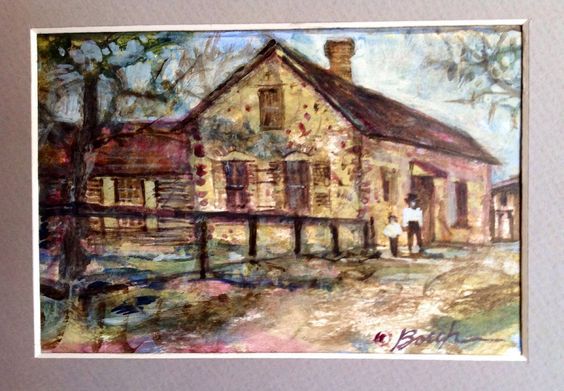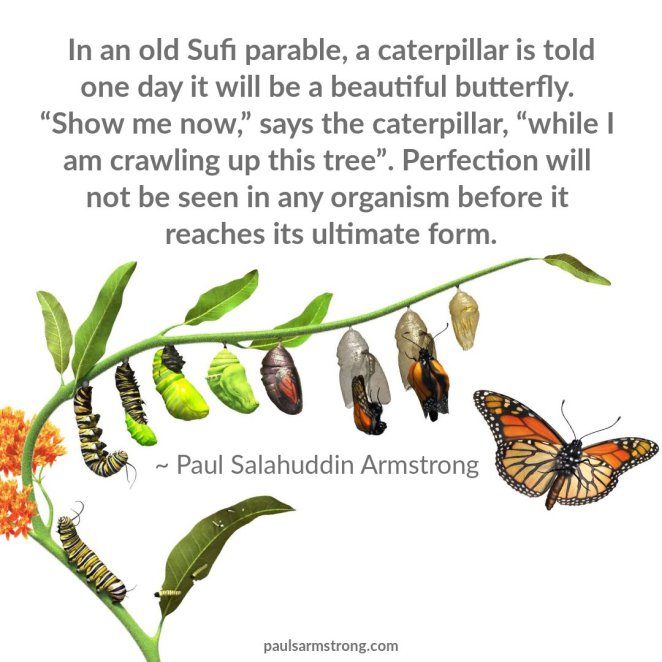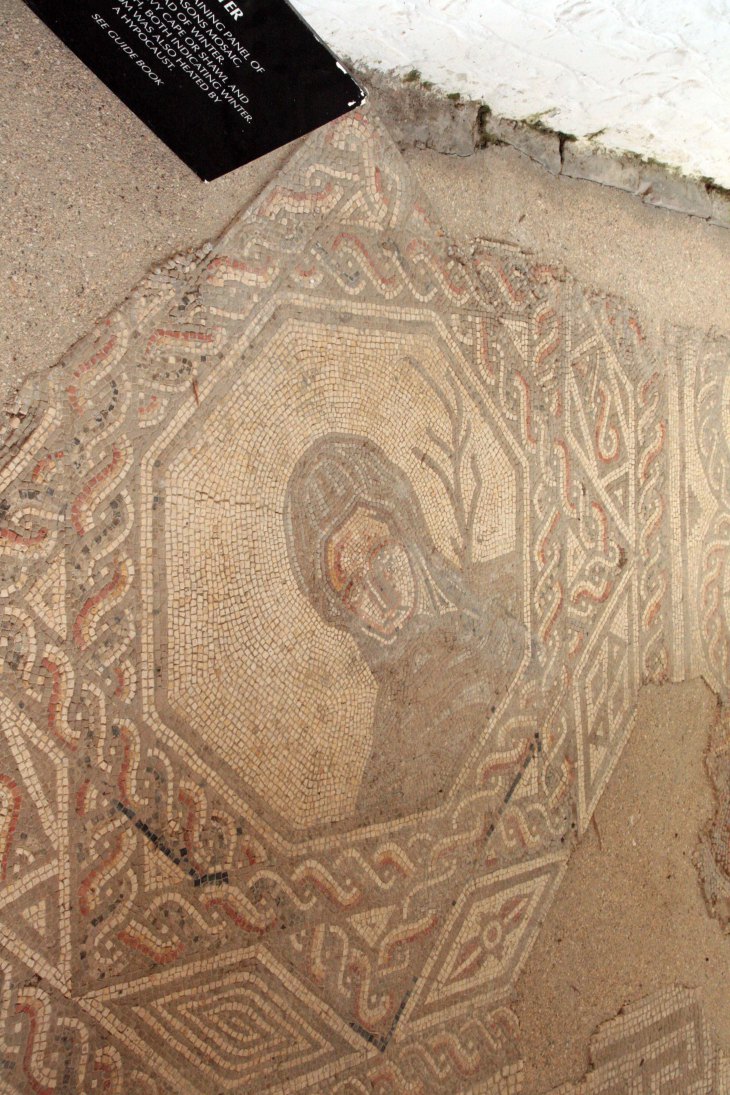|
Il lungo viaggio Leonardo Sciascia Era una notte che pareva fatta apposta, un’oscurità cagliata che a muoversi quasi se ne sentiva il peso. E faceva spavento, respiro di quella belva che era il mondo, il suono del mare: un respiro che veniva a spegnersi ai loro piedi. Stavano, con le loro valige di cartone e i loro fagotti, su un tratto di spiaggia pietrosa, riparata da colline, tra Gela e Licata; vi erano arrivati all’imbrunire, ed erano partiti all’alba dai loro paesi; paesi interni, lontani dal mare, aggrumati nell’arida plaga del feudo. Qualcuno di loro, era la prima volta che vedeva il mare: e il pensiero di dover attraversarlo tutto, da quella deserta spiaggia della Sicilia, di notte, ad un’altra deserta spiaggia dell’America, pure di notte. Perché i patti erano questi – Io di notte vi imbarco – aveva detto l’uomo: una specie di commesso viaggiatore per la parlantina, ma serio e onesto nel volto – e di notte vi sbarco: sulla spiaggia del Nugioirsi, vi sbarco; a due passi da Nuovaiorche… E chi ha parenti in America, può scrivergli che aspettino alla stazione di Trenton, dodici giorni dopo l’imbarco… Fatevi il conto da voi… Certo, il giorno preciso non posso assicurarvelo: mettiamo che c’è mare grosso, mettiamo che la guardia costiera stia a vigilare… Un giorno più o un giorno meno, non vi fa niente: l’importante è sbarcare in America. L’importante era davvero sbarcare in America: come e quando non aveva poi importanza. Se ai loro parenti arrivavano le lettere, con quegli indirizzi confusi e sgorbi che riuscivano a tracciare sulle buste, sarebbero arrivati anche loro; “chi ha lingua passa il mare”, giustamente diceva il proverbio. E avrebbero passato il mare, quel grande mare oscuro; e sarebbero approdati agli stori e alle farme dell’America, all’affetto dei loro fratelli zii nipoti cugini, alle calde ricche abbondanti case, alle automobili grandi come case. Duecentocinquantamila lire: metà alla partenza, metà all’arrivo. Le tenevano, a modo di scapolari, tra la pelle e la camicia. Avevano venduto tutto quello che avevano da vendere, per racimolarle: la casa terragna il mulo l’asino le provviste dell’annata il canterano le coltri. I più furbi avevano fatto ricorso agli usurai, con la segreta intenzione di fregarli; una volta almeno, dopo anni che ne subivano angaria11: e ne aveva soddisfazione, al pensiero della faccia che avrebbero fatta nell’apprendere la notizia. “Vieni a cercarmi in America, sanguisuga: magari ti ridò i tuoi soldi, ma senza interesse, se ti riesce di trovarmi”. Il sogno dell’America traboccava di dollari: non più, il denaro, custodito nel logoro portafogli o nascosto tra la camicia e la pelle, ma cacciato con noncuranza nelle tasche dei pantaloni, tirato fuori a manciate: come avevano visto fare ai loro parenti, che erano partiti morti di fame, magri e cotti dal sole; e dopo venti o trent’anni tornavano, ma per una breve vacanza, con la faccia piena e rosea che faceva bel contrasto coi capelli candidi. Erano già le undici. Uno di loro accese la lampadina tascabile: il segnale che potevano venire a prenderli per portarli sul piroscafo. Quando la spense, l’oscurità sembrò più spessa e paurosa. Ma qualche minuto dopo, dal respiro ossessivo del mare affiorò un più umano, domestico suono d’acqua: quasi che vi si riempissero e vuotassero, con ritmo, dei secchi. Poi venne un brusìo, un parlottare sommesso. Si trovarono davanti il signor Melfa, che con questo nome conoscevano l’impresario della loro avventura, prima ancora di aver capito che la barca aveva toccato terra. – Ci siamo tutti? – domandò il signor Melfa. Accese la lampadina, fece la conta. Ne mancavano due. – Forse ci hanno ripensato, forse arriveranno più tardi… Peggio per loro, in ogni caso. E che ci mettiamo ad aspettarli, col rischio che corriamo? Tutti dissero che non era il caso di aspettarli. Se qualcuno di voi non ha il contante pronto – ammonì il signor Melfa – è meglio si metta la strada tra le gambe13 e se ne torni a casa: che se pensa di farmi a bordo la sorpresa, sbaglia di grosso: io vi riporto a terra com’è vero dio, tutti quanti siete. E che per uno debbano pagare tutti, non è cosa giusta: e dunque chi ne avrà colpa la pagherà per mano mia e per mano dei compagni, una pestata che se ne ricorderà mentre campa; se gli va bene… Tutti assicurarono e giurarono che il contante c’era, fino all’ultimo soldo. – In barca – disse il signor Melfa. E di colpo ciascuno dei partenti diventò una informe massa, un confuso grappolo di bagagli. – Cristo! E che vi siete portata la casa appresso? – cominciò a sgranare bestemmie, e finì quando tutto il carico, uomini e bagagli, si ammucchiò nella barca: col rischio che un uomo o un fagotto ne traboccasse fuori. E la differenza tra un uomo e un fagotto era per il signor Melfa nel fatto che l’uomo si portava appresso le duecentocinquatamila lire; addosso, cucite nella giacca o tra la camicia e la pelle. Li conosceva, lui, li conosceva bene: questi contadini zaurri, questi villani. Il viaggio durò meno del previsto: undici notti, quella della partenza compresa. E contavano le notti invece che i giorni, poiché le notti erano di atroce promiscuità, soffocanti. Si sentivano immersi nell’odore di pesce di nafta e di vomito come in un liquido caldo nero bitume. Ne grondavano all’alba, stremati, quando salivano ad abbeverarsi di luce e di vento. Ma come l’idea del mare era per loro il piano verdeggiante di messe quando il vento lo sommuove, il mare vero li atterriva: e le viscere gli si strizzavano, gli occhi dolorosamente verminavano di luce se appena indugiavano a guardare. Ma all’undicesima notte il signor Melfa li chiamò in coperta: e credettero dapprima che fitte costellazioni fossero scese al mare come greggi; ed erano invece paesi, paesi della ricca America che come gioielli brillavano nella notte. E la notte stessa era un incanto: serena e dolce, una mezza luna che trascorreva tra una trasparente fauna di nuvole, una brezza che allargava i polmoni. – Ecco l’America – disse il signor Melfa. – Non c’è pericolo che sia un altro posto? – domandò uno: poiché per tutto il viaggio aveva pensato che nel mare non ci sono né strade né trazzere, ed era da dio fare la via giusta, senza sgarrare, conducendo una nave tra cielo ed acqua. Il signor Melfa lo guardò con compassione, domandò a tutti – E lo avete mai visto, dalle vostre parti, un orizzonte come questo? E non lo sentite che l’aria è diversa? Non vedete come splendono questi paesi? Tutti convennero, con compassione e risentimento guardarono quel loro compagno che aveva osato una così stupida domanda. – Liquidiamo il conto – disse il signor Melfa. Si frugarono sotto la camicia, tirarono fuori i soldi. – Preparate le vostre cose – disse il signor Melfa dopo avere incassato. Gli ci vollero pochi minuti: avendo quasi consumato le provviste di viaggio,che per patto avevano dovuto portarsi, non restava loro che un po’ di biancheria e i regali per i parenti d’America: qualche forma di pecorino qualche bottiglia di vino vecchio qualche ricamo da mettere in centro alla tavola o alle spalliere dei sofà. Scesero nella barca leggeri leggeri, ridendo e canticchiando; e uno si mise a cantare a gola aperta, appena la barca si mosse. E dunque non avete capito niente? – si arrabbiò il signor Melfa. – E dunque mi volete fare passare il guaio?… Appena vi avrò lasciati a terra potete correre dal primo sbirro che incontrate, e farvi rimpatriare con la prima corsa: io me ne fotto, ognuno è libero di ammazzarsi come vuole… E poi, sono stato ai patti: qui c’è l’America, il dovere mio di buttarvici l’ho assolto… Ma datemi il tempo di tornare a bordo, Cristo di Dio! Gli diedero più del tempo di tornare a bordo: che rimasero seduti sulla fresca sabbia, indecisi, senza saper che fare, benedicendo e maledicendo la notte: la cui protezione, mentre stavano fermi sulla spiaggia, si sarebbe mutata in terribile agguato se avessero osato allontanarsene. Il signor Melfa aveva raccomandato – sparpagliatevi – ma nessuno se la sentiva di dividersi dagli altri. E Trenton chi sa quant’era lontana, chi sa quando ci voleva per arrivarci. Sentirono, lontano e irreale, un canto. “Sembra un carrettiere nostro”, pensarono: e che il mondo è ovunque lo stesso, ovunque l’uomo spreme in canto la stessa malinconia, la stessa pena. Ma erano in America, le città che baluginavano dietro l’orizzonte di sabbia e d’alberi erano città dell’America. Due di loro decisero di andare in avanscoperta. Camminarono in direzione della luce che il paese più vicino riverberava nel cielo. Trovarono quasi subito la strada: “asfaltata, ben tenuta; qui è diverso che da noi”, ma per la verità se l’aspettavano più ampia, più dritta. Se ne tennero fuori, ad evitare incontri: la seguivano camminando tra gli alberi. Passò un’automobile: “pare una seicento”; e poi un’altra che pareva una millecento, e un’altra ancora: “le nostre macchine loro le tengono per capriccio, le comprano ai ragazzi come da noi le biciclette”. Poi passarono, assordanti, due motociclette, una dietro l’altra. Era la polizia, non c’era da sbagliare: meno male che si erano fuori della strada. Ed ecco che finalmente c’erano le frecce. Guardarono avanti e indietro, entrarono nella strada, si avvicinarono a leggere: Santa Croce Camerina – Scoglitti. – Santa Croce Camerina: non mi è nuovo, questo nome. – Pare anche a me; e nemmeno Scoglitti mi è nuovo. – Forse qualcuno dei nostri parenti ci abitava, forse mio zio prima di trasferirsi a Filadelfìa: che io ricordo stava in un’altra città, prima di passare a Filadelfìa. – Anche mio fratello: stava in un altro posto, prima di andarsene a Brucchilin… Ma come si chiamasse, proprio non lo ricordo: e poi, noi leggiamo Santa Croce Camerina, leggiamo Scoglitti; ma come loro non lo sappiamo, l’americano non si legge come è scritto. – Già, il bello dell’italiano è questo: che tu come è scritto lo leggi… Ma non è che possiamo passare qui la nottata, bisogna farsi coraggio… Io la prima macchina che passa, la fermo: domanderò solo “Trenton?”… Qui la gente è più educata. Anche a non capire quello che dice, gli scapperà un gesto, un segnale: e almeno capiremo da che parte è, questa maledetta Trenton. Dalla curva, a venti metri, sbucò una cinquecento: l’automobilista se li vide guizzare davanti, le mani alzate a fermarlo. Frenò bestemmiando: non pensò a una rapina, che la zona era tra le più calme; credette volessero un passaggio, aprì lo sportello. – Trenton? – domandò uno dei due. – Che? – fece l’automobilista. – Trenton? – Che Trenton della madonna – imprecò l’uomo dell’automobile. – Parla italiano – si dissero i due, guardandosi per consultarsi: se non era il caso di rivelare a un compatriota la loro condizione. L’automobilista chiuse lo sportello, rimise in moto. L’automobile balzò in avanti: e solo allora gridò ai due che rimanevano sulla strada come statue – ubriaconi, cornuti ubriaconi, cornuti e figli di… – il resto si perse nella corsa. Il silenzio dilagò. – Mi sto ricordando – disse dopo un momento quello cui il nome di Santa Croce non suonava nuovo – a Santa Croce Camerina, un’annata che dalle nostre parti andò male, mio padre ci venne per la mietitura. Si buttarono come schiantati sull’orlo della cunetta perché non c’era fretta di portare agli altri la notizia che erano sbarcati in Sicilia. |
The long voyage Leonardo Sciascia The night seemed staged, the darkness so dense you could almost feel its weight when you moved. And the sound of the sea, the breath of that creature that was the world, was frightening: and its breath died at their feet. They stood with their cardboard suitcases and their bundles on a stretch of pebbly beach, hidden by the hills, between Gela and Licata; they had arrived at dusk, and had left their towns at dawn, towns in the hinterland, far from the sea, lumped together on arid tracts of desert. Some had never seen the sea before, and the idea of crossing it, from one deserted beach in Sicily, at night, to another deserted beach in America, also at night, filled them with terror. But that was the agreement – I let you on board at night – the man had said: a sort of slick salesman by the sounds of him, but with an open, honest face – and let you off at night, on a shore in Nujorsi, at just a stone’s throw from Nuovaiorke… Those of you who have relatives in America can write and tell them to wait for you at the station in Trenton twelve days after we set sail…Do the math yourselves… I can’t, obviously, give you an exact date; we have to take the conditions of the sea, or the possible presence of a coast guard, into consideration. A day early, a day late, what’s the difference: the important thing is that you land in America. And landing in America really was the important thing, how and when made little difference. If their relatives received their letters with their indecipherable addresses scribbled on the envelopes, they would get there too. It was a case of “you can’t cross the sea merely by standing and staring at the water ”, as the saying goes. And they were going to cross the sea, that great dark sea; and they would make their way into gli stores and onto le farms of America, into the arms of their brothers, uncles, nephews and cousins, into warm, rich, abundant homes, into cars the size of houses. Two hundred and fifty thousand lire: half at the departure and the other half upon arrival. Money which they kept between their bare chests and their shirts, like religious pendants. They had sold everything they had to sell to get the money: their humble homes, the mule, the donkey, the year’s provisions, the chest of drawers and the blankets. The more cunning ones had borrowed the money from loan sharks, with the secret intention of ripping them off, at least once in their lives, after all the years of abuse; and the thought of their expressions when they discovered the truth filled them with satisfaction. “Come get me in America, bloodsuckers: maybe I’ll give you your money back, but you can forget the interest, if you find me, that is.” The American dream was brimming with dollari: no more lire kept in tattered wallets, or hidden between their shirts and bare chests, but dollari stuck nonchalantly in the pockets of their trousers, and pulled out in hand-fulls like they had seen their relatives do, the same relatives who, when they had left, were starving to death, skinny and sun baked; and who, after twenty or thirty years, but just for a brief holiday, came back with full rosy cheeks that were in net contrast with their pure white hair. It was already eleven. One of the men turned on a flashlight: it was the signal that they could come and take them to the steamer. When he turned it off, the darkness seemed denser and more frightening. But a few minutes later, from the oppressive breathing of the sea came a more human, domestic sound of water: almost as if buckets were being filled, rhythmically. Then came a buzz, low murmurings. Even before they realized that the ship had touched land, the organizer of their adventure, a man they knew by the name of Signor Melfa, was standing in front of them. – Everybody here?- asked Signor Melfa. He turned on the flashlight and counted. Two were missing. – Maybe they had second thoughts, or maybe they’re late…Too bad for them. What do they expect us to do, with the risk we’re running, wait? They all answered there was no sense waiting. If any of you came here without the cash – Signor Melfa warned – you might as well pick up your heels and go home: because if you’re thinking of playing me for a fool when we get on board, you’ve got another thing coming. By God, I’ll bring the whole lot of you back here on shore. And it’s not fair that everyone should have to pay for one person’s mistake; so the guilty party will get it from me first, and from his companions later: he’ll get a thrashing he will remember for the rest of his life, if he’s lucky enough to survive… They all swore they had the money, cash, to the penny. -Get on the ship – said Signor Melfa. And suddenly, the individual travellers became an unidentifiable mass, a confusing cluster of suitcases. -Christ! Did you bring the whole house with you? – and he started cursing and only stopped when the whole lot, men and bags, had piled onto the ship: with the risk of losing a man or bundle overboard. And the only difference between the man and his bundle was, for Signor Melfa, the fact that the man had two hundred and fifty thousand lire on him, sewn into his jacket or stuck between his bare chest and his shirt. He knew these people, knew them well, these country bumpkins, these yokels. The voyage lasted less than expected: eleven nights, including the day they left. They counted the nights, not the days, because the nights were atrociously promiscuous, suffocating. It was as if they were immersed in the smell of fish, furnace oil and vomit, in a sort of pitch-black liquid tar. They were dripping in it at daybreak, weary, when they went up to drink in the light and the wind. But since their idea of the sea was a lush plain of wheat gently swaying in the wind, the real sea terrified them; and their stomachs churned, and their eyes ached from the light if their gaze lingered there. But on the eleventh night, Signor Melfa called them to the deck. At first they thought that numerous constellations had fallen to the sea in flocks; but they were, in fact, cities, cities of the rich America that shone like gems in the night. And the night itself was a vision: calm and gentle, a half-moon that drifted in an evanescent swarm of clouds, a breeze that expanded the lungs. -Here we are in America – said Signor Melfa. -There is no mistake this is the right place, right? – asked one of the men: for the whole journey he had thought about how the sea had no roads or paths, and about how difficult it must be to guide a ship between the sky and the sea without making mistakes. Signo Melfa looked at him with pity, and asked the others – Have you ever seen a horizon like this where you come from? Can’t you tell the air is different? Don’t you see how those cities shine? They agreed, looking at their companion, who dared to ask such a stupid question, with a mixture of pity and resentment. -Let’s settle the payment – said Signor Melfa. They reached under their shirts and pulled out the cash. -Get your things ready – said Signor Melfa after he had collected the money. It took them only a few minutes: having consumed the food for the journey, which, as agreed, they had had to provide themselves, all they had left was some linen and gifts for their relatives in America – some pecorino cheese, a bottle or two of vintage wine, a doily to set on the table as a centrepiece or on the back of a sofa. They got lightly into the boat, laughing and singing. One of them started singing out load as soon as the boat started moving. Don’t you understand anything?- shouted signor Melfa angrily. – Are you trying to get me into trouble?…As soon as I let you off this boat, you can run up to the first cop you find and get yourselves deported. I couldn’t care less. You’re free to sign your own death warrant…… What’s more, I kept my side of the bargain: this is America, and by bringing you here, I did my part…Give me some time to get on the ship, by God! They gave him more than enough time to get back on board the ship: they sat on the cool sand, uncertain about what to do, blessing and cursing the night which protected them there on the beach, but which would soon become, they were sure, a terrible menace if they dared move away. Signor Melfa had warned them – split up – but no-one felt like leaving the others. And who knew how far Trenton was? Who knew how long it would take to get there? They heard, in the distance, a surreal chant. “It sounds like one of our own carters,” they thought: and they thought the world was the same everywhere, and a man singing was the same everywhere, voicing the same sorrow, the same pain. But they were in America, and the cities that shone in the distant horizon behind the sand dunes and trees, were American cities. Two of the men decided to explore the area. They walked towards the bright skies of the nearest city. They found the road almost immediately: “paved, well kept; different from ours”, but to be truthful, they expected it to be wider, straighter. They stayed off the road so as not to run into anyone: they walked under the trees. A car passed: “looks like a Fiat Seicento,” and then another one that looked like a Fiat Millecento, and another one: “our cars are like toys to them, they buy them for their kids, like we buy bikes.” Then two motorcycles raced by loudly, one after the other. It was the police, no mistake about it: thank goodness they were off the road. And then, finally, they reached some roads signs. They looked both ways, moved onto the road and went up to the signs and read: Santa Croce Camerina – Scoglitti. – Santa Croce Camerina: the name isn’t new to me. -Yeah: Scoglitti isn’t new to me either. – Maybe one of our relatives lived here, maybe my uncle before he moved to Philadelphia. I think he lived somewhere else before moving to Philadelphia. -My brother too: he lived in some other place before moving to Brooklyn. But I can’t for the life of me remember the name: plus, we say Santa Croce Camerina, and Scoglitti, but who knows how they say it in English: you don’t say things like they’re written in English. -Yeah. That’s what’s good about Italian: you read the letters like you see ‘em…Anyways, we can’t spend the night here, we gotta get moving…I’m gonna stop the first car I see and say: “Trenton?”… People are nicer here. Even if we don’t understand what they say, maybe they’ll point or something and we’ll understand which way to go to get to this damn Trenton. From behind the bend, some twenty metres away, a Fiat 500 appeared; the driver saw them jump in front of the car with their hands up, signalling to stop. He put on the brakes, cursing: he didn’t think they wanted to rob him, the area was safe; he thought they wanted a ride and threw the car door open. -Trenton? – asked one of the men. -What?- asked the driver. -Trenton? -Trenton what, for Chrissake?- shouted the man. -He talks Italian – they said to each other hoping for advice: was it a good idea to confide in this fellow Italian? The driver closed the car door and turned the engine on. The car jumped forward, and only then did he shout at the two men standing there like statues – drunks, damned drunks, damned sons of b… – the rest was lost in the wind. Silence fell. And after a pause – Now I remember – said the man who had recognized the name Santa Croce – my father came to Santa Croce Camerina for the wheat harvest one year, when we had a rough season in our parts. They abandoned themselves heavily on the side of the road because they were in no hurry to tell the others they had landed in Sicily. Translation by ©Matilda Colarossi |
Leonardo Sciascia was an Italian writer, novelist, essayist, playwright and politician.The piece is from Il mare colore del vino, [The wine coloured sea], Einaudi. And can be found on the web at: http://www.pianetascuola.it/risorse/media/secondaria_primo/italiano/giallo_rosso_blu3_lett/testi_audio/lungo_viaggio/lungo_viaggio_1.pdf

This work is licensed under a Creative Commons Attribution-NonCommercial-NoDerivatives 4.0 International License.





